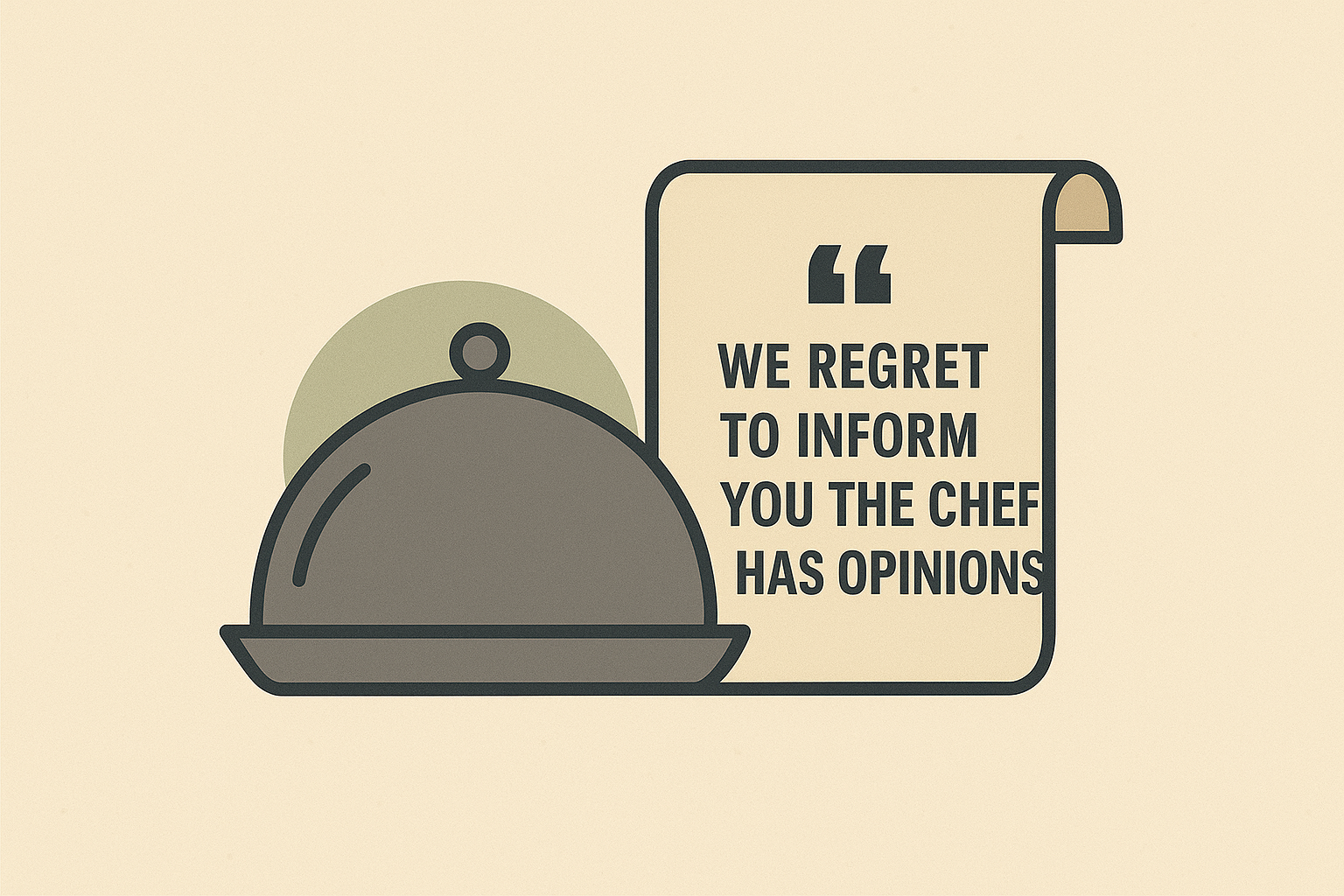We Regret to Inform You the Chef Has Opinions

The food is fine.
But first — a paragraph. Or three. About the chef’s journey. Their philosophy. Their decision to use only one varietal of ancient grain milled at dawn by a specific friend. Their rejection of dairy. Their complicated relationship with forks.
You came for dinner. You got a lecture.
Menus these days read like applications. Not for a job, but for a prize. There's provenance, politics, a dash of poetry. A micro-essay on why the carrots are raw and why that’s subversive. It’s not a plate — it’s a position.
And somehow, it’s never just sustainably sourced. It’s “a reflection on systems of extraction and resilience.” You’ll hear about the footprint of the dish, the carbon of the cow, the ethics of the trout — right before a spoonful of caviar slides in anyway.
This isn’t a call to leave sustainability off the table. Quite the opposite. The problem isn’t that chefs care too much — it’s that they sometimes mistake caring for communicating. The message overwhelms the medium. The food becomes secondary to the story.
And let’s be honest: some of it is theatre. Greenwashing, but make it gourmet. Diners are handed a sense of virtue they didn’t earn — because the carrot was grown nearby. Meanwhile, the wine list flew in from six continents.
It’s not that we don’t care. We just didn’t come here to be convinced.
Cook with ethics. Cook with vision. But let the food speak first — and maybe let it speak a little louder than the press release.
